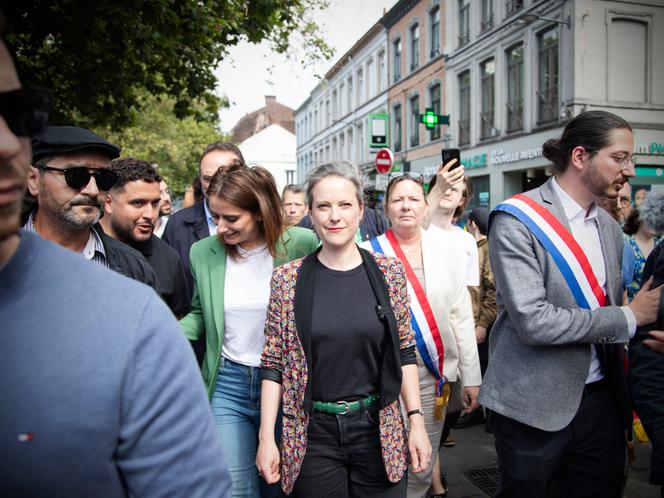


If everything had gone ahead as planned, she'd currently be visiting the Leaning Tower of Pisa in the Tuscan heat, sipping a chilled spritz. Instead, Lucie Castets canceled everything to accept a rather unusual summer job: Forcing Emmanuel Macron to appoint her as France's prime minister, even though, two weeks ago, he didn't even know she existed. It's a rather complex story, but all those who have met Castets since Tuesday, July 23, the date when she burst onto the French political scene, seem to have no worries whatsoever: The 37-year-old senior civil servant has all the necessary aplomb, according to them, as she now faces her first major challenge.
On Wednesday, July 31, the satirical newspaper Le Canard Enchaîné revealed that the left-wing Nouveau Front Populaire (NFP) alliance's candidate for prime minister, had taken paid leave to begin her "campaign," instead of taking an unpaid leave of absence. As a result, right-wing Parisian politicians alerted the public prosecutor for her "violation of her duty of confidentiality." She brushed aside the controversy: "I'm very relaxed. There's no legal problem," she told Le Monde on Friday, August 2. She had more pressing matters on her plate. She was soon to meet, via videoconference, with the heads of the four NFP parties: Marine Tondelier for the Greens, Fabien Roussel for the Parti Communiste Français (PCF), Olivier Faure for the Parti Socialiste (PS) and Manuel Bompard for La France Insoumise (LFI, radical left). It's all about the scale of the challenge – "on the day you're [appointed], you have to be ready" – and these meetings, which always start the same way: "I tell them what I intend to do."
Castets speaks in the first person, because she wants to demonstrate her authority, as she has to successfully carry out three Herculean tasks simultaneously: Firstly, she has to implement the NFP's program, according to a roadmap that is still being worked out. Since her first interviews, her message hasn't changed: "I'm not going to contradict the NFP's program, which is the base I'm working from," according to her priorities, "the environmental transition, purchasing power, and the reconstruction of deteriorating public services."
Passing legislation with a relative majority of MPs in the Assemblée? Not easy, or even "impossible to have a global coalition in the Assemblée, but it's possible, text by text, with MPs drawn from the outgoing majority. How could we not imagine a broad consensus on increasing nurses' night-time wages?"
You have 71.03% of this article left to read. The rest is for subscribers only.
